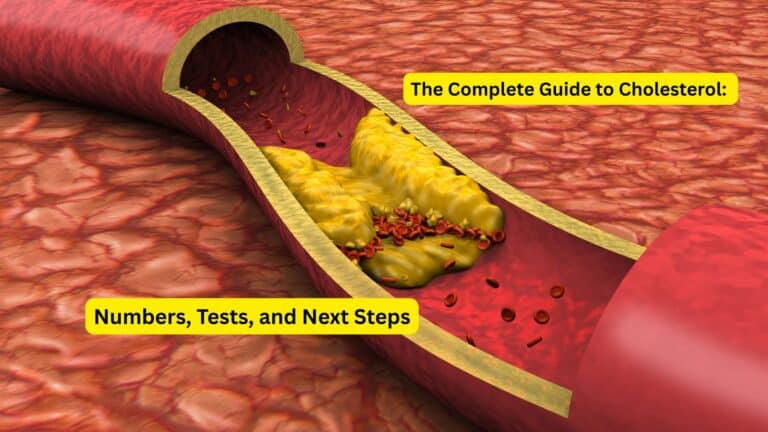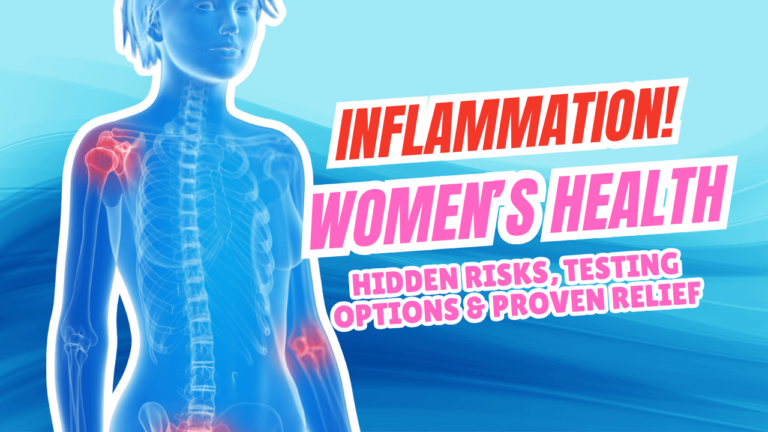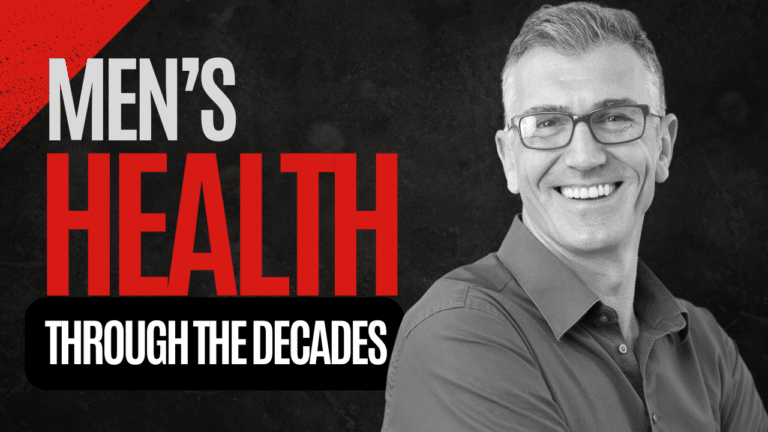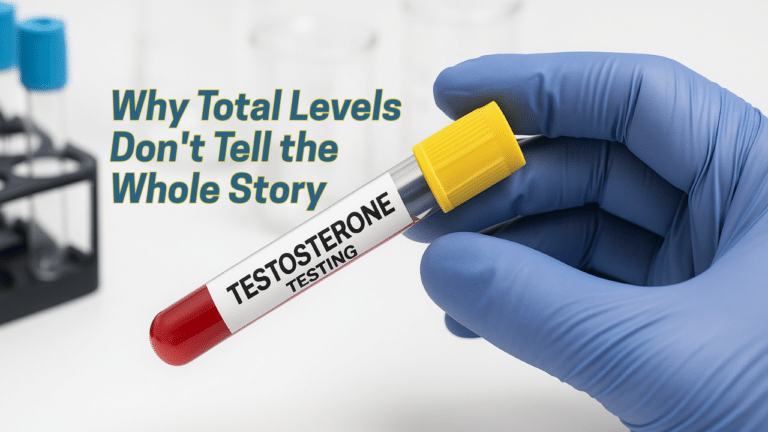The connection between stress and cholesterol might seem surprising, but decades of research reveal a powerful link that affects millions of people worldwide. When your body experiences chronic stress, it triggers a cascade of hormonal responses that can significantly impact your cardiovascular health, including elevating harmful cholesterol levels. Understanding this relationship opens the door to natural, mind-body approaches that can help you manage both stress and cholesterol simultaneously, offering a holistic path to better heart health.
How Stress Affects Cholesterol
Chronic stress creates a perfect storm for elevated cholesterol through both direct and indirect pathways. When you’re under prolonged stress, your body releases stress hormones like cortisol and adrenaline, which can directly increase LDL (bad) cholesterol and triglyceride levels in your bloodstream. This biological response, designed to help our ancestors survive immediate threats, becomes problematic when stress becomes a constant companion in modern life.
The indirect effects of stress on cholesterol can be equally damaging. Stress often drives behavioral changes that compound the problem, leading to poor dietary choices, increased consumption of high-fat and high-sugar comfort foods, and decreased physical activity. Stress affects cholesterol indirectly by promoting unhealthy eating habits favoring high-fat/sugar foods that raise LDL cholesterol, creating a cycle where stress leads to behaviors that further worsen your lipid profile.
Research shows that people under chronic stress tend to gravitate toward processed foods, skip meals, or overeat as coping mechanisms. These stress-induced eating patterns typically involve foods high in saturated fats, trans fats, and refined sugars—all of which contribute to raising LDL cholesterol levels while lowering beneficial HDL cholesterol.
Mind-Body Strategies to Lower Cholesterol
The good news is that various mind-body techniques have shown remarkable effectiveness in managing both stress and cholesterol levels. These approaches work by activating your body’s relaxation response, which counteracts the stress-induced hormonal cascade that elevates cholesterol. By incorporating these evidence-based strategies into your daily routine, you can address both the root cause (stress) and the symptom (elevated cholesterol) simultaneously.
Meditation and Mindfulness
Meditation and mindfulness practices have emerged as powerful tools for improving cardiovascular health. Meditation practice is associated with a statistically significant reduction in triglycerides and LDL cholesterol, making it one of the most accessible and effective mind-body interventions available.
Regular meditation works by activating the parasympathetic nervous system, which helps lower cortisol levels and reduce the inflammatory response associated with chronic stress. Even just 10-15 minutes of daily meditation can begin to shift your body’s stress response patterns. Mindfulness-based stress reduction (MBSR) programs have shown particularly promising results, with participants experiencing measurable improvements in both stress levels and lipid profiles after just eight weeks of practice.
The beauty of meditation lies in its simplicity and accessibility. Whether you choose guided meditation apps, breathing-focused techniques, or body scan practices, the key is consistency rather than duration. Starting with just five minutes daily and gradually building up can create sustainable habits that yield long-term cardiovascular benefits.
Yoga and Breathing Practices
Yoga combines physical movement, breath control, and mindfulness, making it an ideal practice for addressing stress-related cholesterol elevation. Regular yoga practice is connected to lower LDL and higher HDL cholesterol levels in a 53-study review, demonstrating the profound impact this ancient practice can have on modern health challenges.
The physical postures in yoga help reduce muscle tension and improve circulation, while the breathing techniques (pranayama) directly activate the relaxation response. Deep, controlled breathing practices can lower heart rate and blood pressure within minutes, providing immediate stress relief while contributing to long-term improvements in lipid metabolism.
Restorative yoga poses, such as supported child’s pose, legs-up-the-wall, and gentle twists, are particularly effective for stress reduction. These poses encourage the body to shift from the sympathetic (fight-or-flight) to parasympathetic (rest-and-digest) nervous system, creating an environment where healing and repair can occur.
Exercise and Endorphins
Physical activity serves as a natural antidote to stress while directly improving cholesterol profiles through multiple mechanisms. Exercise for 150+ minutes weekly improves lipid profiles and lowers stress hormones, making it one of the most effective interventions for both stress management and cardiovascular health.
When you exercise, your body releases endorphins—natural mood elevators that help counteract the effects of stress hormones. These “feel-good” chemicals not only improve your mental state but also help regulate the hormonal imbalances that contribute to elevated cholesterol. Regular physical activity also increases insulin sensitivity, which plays a crucial role in lipid metabolism.
The type of exercise matters less than consistency. Whether you prefer brisk walking, swimming, cycling, dancing, or strength training, the key is finding activities you enjoy and can sustain long-term. Even moderate-intensity activities like gardening or playing with pets can contribute to your weekly exercise goals while providing stress-relieving benefits.
Nutrition and Stress-Eating Awareness
Developing awareness of your eating patterns during stressful periods is crucial for maintaining healthy cholesterol levels. Stress eating often involves reaching for foods high in saturated fats, trans fats, and simple carbohydrates—all of which can worsen your lipid profile. By recognizing these patterns, you can develop healthier coping strategies that support both your emotional well-being and cardiovascular health.
Planning nutritious meals and snacks in advance can help prevent impulsive food choices during stressful moments. Focus on foods rich in omega-3 fatty acids, fiber, and antioxidants, which not only support heart health but also help stabilize mood and energy levels. Incorporating stress-fighting foods like fatty fish, leafy greens, berries, nuts, and whole grains can provide both nutritional and psychological benefits.
Mindful eating practices can also help break the stress-food cycle. Taking time to eat without distractions, chewing slowly, and paying attention to hunger and fullness cues can improve both digestion and satisfaction, reducing the likelihood of stress-driven overeating.
Supplements and Natural Support
While lifestyle modifications form the foundation of stress and cholesterol management, certain supplements may provide additional support when used appropriately. Natural compounds like B-complex vitamins, magnesium, and adaptogenic herbs such as ashwagandha and rhodiola have shown promise in supporting both stress resilience and cardiovascular health.
Nutritional supplements such as vitamin B complex, magnesium, and adaptogenic herbs (ashwagandha, rhodiola) may aid stress management and cardiovascular health. B vitamins play crucial roles in energy metabolism and nervous system function, while magnesium helps regulate muscle and nerve function, including the smooth muscles in blood vessels.
Adaptogenic herbs have been used for centuries to help the body adapt to stress more effectively. Ashwagandha, in particular, has shown promise in clinical studies for reducing cortisol levels and improving stress resilience. Rhodiola may help improve mental clarity and reduce fatigue associated with chronic stress.
However, it’s essential to consult with a healthcare provider before adding any supplements to your routine, especially if you’re taking medications or have existing health conditions. Supplements should complement, not replace, evidence-based lifestyle interventions like stress management techniques, regular exercise, and a heart-healthy diet.
Stress Management as Part of a Bigger Picture
While stress management can significantly impact cholesterol levels, it’s important to understand that it works best as part of a comprehensive approach to cardiovascular health. Stress reduction complements but does not replace traditional cholesterol management like diet, weight control, and medications, making it an essential component of a holistic health strategy rather than a standalone solution.
The most effective approach combines stress management techniques with proven cholesterol-lowering strategies such as following a heart-healthy diet, maintaining a healthy weight, avoiding tobacco, and taking prescribed medications when necessary. This multi-faceted approach addresses cholesterol elevation from multiple angles, maximizing your chances of achieving and maintaining healthy lipid levels.
Regular monitoring through cholesterol testing plays a crucial role in tracking your progress and adjusting your approach as needed. Testing every 3-6 months can help you see how your stress management efforts are impacting your lipid profile, providing motivation to continue healthy habits and helping your healthcare provider make informed decisions about your treatment plan.
FAQs
Can stress really raise cholesterol?
Yes, chronic stress can significantly raise cholesterol levels through multiple pathways. Stress hormones like cortisol directly increase LDL cholesterol and triglycerides, while stress-driven behaviors such as poor eating habits and reduced physical activity further compound the problem.
What mind-body techniques are most effective for cholesterol management?
Research shows that meditation, yoga, deep breathing exercises, and mindfulness practices are particularly effective. These techniques work by activating the body’s relaxation response, reducing stress hormones, and supporting healthier lifestyle choices that benefit cholesterol levels.
How much exercise is recommended to control stress and cholesterol?
Health experts recommend at least 150 minutes of moderate-intensity exercise per week to effectively manage both stress and cholesterol. This can be broken down into 30 minutes of activity five days per week, though even shorter sessions can provide benefits.
Are supplements safe and effective for stress-related cholesterol issues?
Certain supplements like B vitamins, magnesium, and adaptogenic herbs may support stress management and cardiovascular health. However, supplements should only be used under professional guidance and as part of a comprehensive approach that includes proven lifestyle interventions.
Is stress management alone enough to lower cholesterol?
While stress management can significantly impact cholesterol levels, it typically works best when combined with other proven strategies such as dietary changes, regular exercise, weight management, and medical treatment when appropriate. A comprehensive approach yields the best results for most people.
Conclusion
The relationship between stress and cholesterol represents both a challenge and an opportunity in cardiovascular health management. Understanding how chronic stress elevates cholesterol through hormonal pathways and behavioral changes empowers you to take targeted action using mind-body strategies that address both issues simultaneously.
By incorporating evidence-based techniques like meditation, yoga, regular exercise, and mindful eating into your routine, you can create a powerful foundation for better cardiovascular health. These approaches not only help lower cholesterol but also improve overall well-being, energy levels, and quality of life.
Regular cholesterol monitoring through accessible testing services allows you to track your progress and celebrate the tangible benefits of your stress management efforts. Whether you’re just beginning to explore the connection between stress and cholesterol or looking to enhance your current heart-healthy lifestyle, these mind-body strategies offer a natural, sustainable path to better cardiovascular health that you can start implementing today.
This content is for informational purposes only and not a substitute for professional medical advice. Always consult with your healthcare provider before making significant changes to your health routine or starting new treatments.






